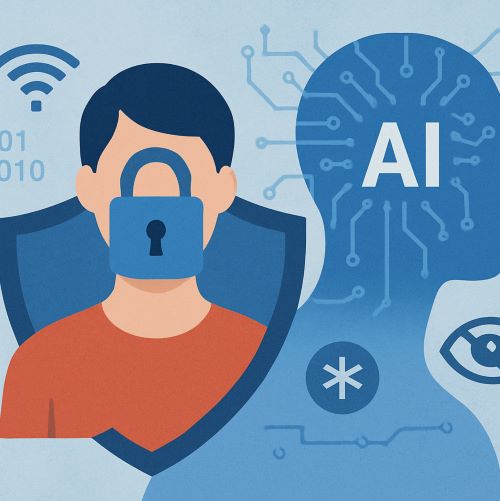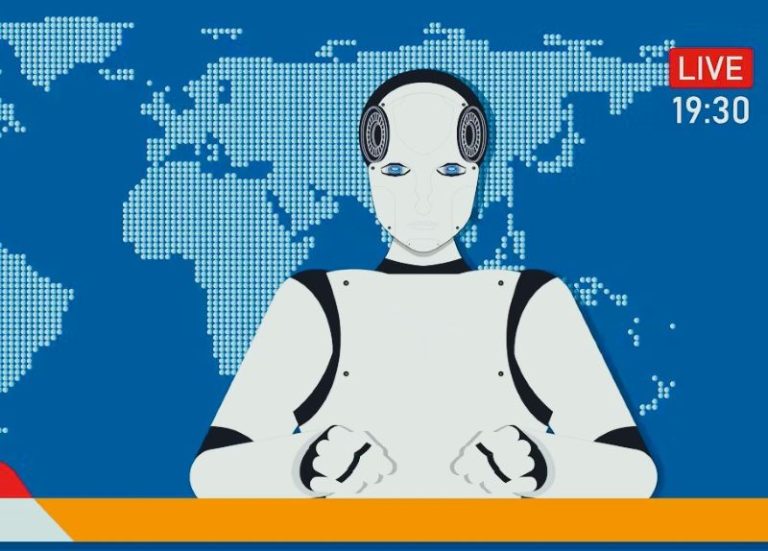

It is about defending the space where we are still free to become.

By Matthew A. McIntosh
Public Historian
Brewminate
Introduction: A Vanishing Right
Privacy, once considered a birthright in democratic societies, is fast becoming a relic of the analog past. In the age of artificial intelligence (AI), personal data is not just collected — it is interpreted, weaponized, and monetized in real time. AI has not merely accelerated the erosion of privacy; it has redefined what privacy means, often without the informed consent of those affected.
We are not just surveilled — we are predicted, classified, and categorized by systems we do not see and cannot challenge. Our behaviors, preferences, moods, even our faces and voices are mined for meaning, then used to shape the world we encounter. This article examines how AI is transforming the very concept of privacy, explores the consequences of that transformation, and proposes paths forward for individuals, institutions, and societies that still value the private self.
The Data-fied Self
AI systems rely on vast data lakes — and the richest veins come from human lives. Every online purchase, GPS movement, search query, facial expression, or voice command feeds machine learning models whose job is to know you better than you know yourself.
Crucially, this data is often gathered:
- Without meaningful consent
- Through opaque third-party brokers
- In ways that exceed the understanding of the average user
The traditional legal model of privacy — rooted in notice and choice — is fundamentally obsolete. Users may “agree” to terms, but few read them, and even fewer can grasp the scope of automated data extraction happening behind sleek interfaces.
AI as Surveillance Multiplier
Artificial intelligence supercharges surveillance in three primary ways:
- Scale
AI can monitor millions of individuals simultaneously, extracting patterns and anomalies faster than any human analyst could. Governments and corporations now surveil entire populations, not just suspects or subscribers. - Inference
Algorithms don’t just record behavior; they infer unspoken truths — sexuality, political leanings, pregnancy, mental health, emotional state — from seemingly neutral data points. - Permanence
Data that once evaporated now endures. AI thrives on historical archives — what you said, where you went, how you looked — and can reprocess it indefinitely, in new and unforeseen ways.
Real-World Harms
The erosion of privacy is not merely theoretical. AI-powered invasions have material consequences for human lives:
- Facial Recognition: Used without consent in public spaces, disproportionately targeting minorities, protestors, and vulnerable populations.
- Algorithmic Profiling: Denials of loans, jobs, or insurance based on predictive models users can neither see nor correct.
- Deepfakes and Voice Cloning: New forms of identity theft and defamation, undermining trust in audio-visual evidence.
- Emotion AI: Inferences about inner states used to manipulate consumer behavior or workplace productivity, crossing the line into psychological intrusion.
The Legal Lag
Most existing privacy laws — including the U.S. Privacy Act of 1974 and the EU’s GDPR — were not designed for AI. While some jurisdictions have taken steps (e.g., California’s CCPA, the EU AI Act), regulation remains:
- Fragmented: A patchwork of laws makes compliance difficult and enforcement inconsistent.
- Reactive: Legislation often follows scandal, rather than anticipating new forms of harm.
- Tech-friendly: Loopholes and soft enforcement reflect the political power of the tech industry.
Meanwhile, AI developers face few consequences for privacy violations, and responsibility is easily diffused across vendors, data collectors, and integrators.
Reframing Privacy for the AI Era
To defend privacy in the age of AI, we must shift from a transactional view (what users “agree” to) to a relational and structural one. Privacy must be recognized not just as a personal choice, but as:
- A collective good, like clean air or public safety
- A precondition for autonomy, dignity, and democracy
- A limit on power, especially when exercised through opaque algorithms
This demands a shift in legal philosophy, technical design, and civic culture.
Toward a Privacy-Conscious AI Future
Privacy by Design
Mandate that AI systems minimize data collection, anonymize inputs, and default to user control — not just as an option, but as the standard.
Algorithmic Transparency
Require AI models to explain how decisions are made, what data was used, and whether individuals have been profiled — especially in high-stakes settings like hiring, housing, or policing.
Right to Opt-Out
Give individuals the right to opt out of automated surveillance systems, especially in public spaces. Facial recognition bans in some U.S. cities are a model to expand.
Digital Expiration Dates
Introduce data expiration rules: not all data should live forever. AI systems must forget — as humans do — after a reasonable time frame.
Algorithmic Redress
Ensure users can challenge AI-generated decisions, demand audits, and access appeals — especially in cases of discrimination or harm.
Public Oversight
Establish independent AI watchdogs with teeth: funding, subpoena power, and technical expertise to audit both public and private systems.
The Role of Civic Culture
No amount of regulation can succeed without a cultural shift. Individuals must recognize that privacy is not merely a luxury or a relic, but a modern form of resistance. Choosing encrypted apps, rejecting invasive convenience, questioning the default settings of smart devices — these are not just personal habits, but acts of civil responsibility.
Educators, journalists, and technologists must collaborate to create a public that understands AI not as magic, but as a system with trade-offs, costs, and moral weight.
Conclusion: What We Save When We Guard Privacy
In a world where AI seeks to know us better than we know ourselves, preserving privacy is not about hiding — it is about defending the space where we are still free to become.
Privacy is not the absence of connection, but the condition that makes meaningful connection possible. It is the boundary that enables thought, creativity, intimacy, and dissent. To guard it is to guard human agency itself — and in the age of artificial intelligence, that may be the most radical act of all.
Originally published by Brewminate, 06.30.2025, under the terms of a Creative Commons Attribution-NonCommercial-NoDerivatives 4.0 International license.


